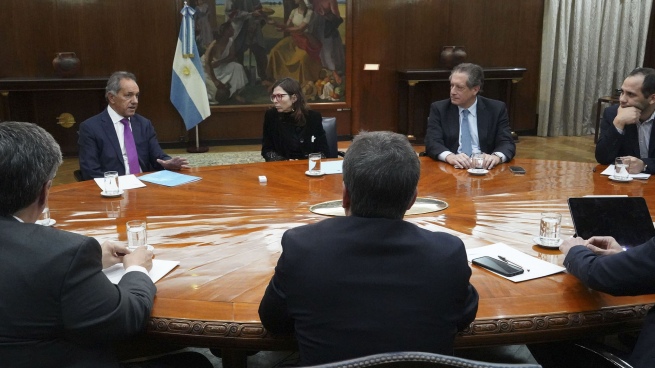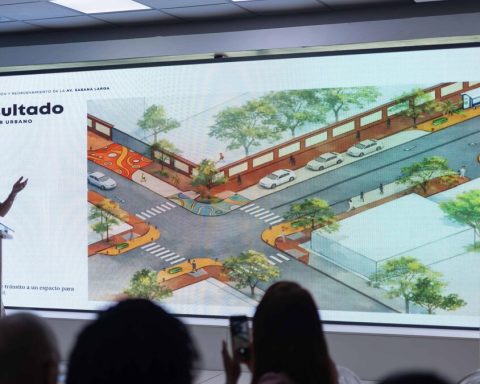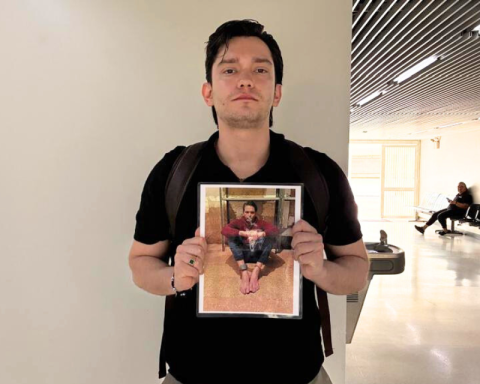The Minister of Economy, Silvina Batakis, together with her counterpart for Productive Development, Daniel Scioli, and the President of the Central Bank, Miguel Ángel Pesce met with representatives of the Association of Automotive Manufacturers (Adefa) to work on the measure that guarantees access to foreign currency to import auto parts and thus maintain the growth of the level of economic activity, in addition to promoting the creation of industrial employment in the country .
Batakis, Scioli, and Pesce held a meeting at the Palacio de Hacienda with directors of the entity that groups automotive terminals.
There they discussed the measure that improves the conditions of access to dollars for the import of auto parts of units destined for export, communicated this afternoon by the Central Bank.
During the meeting, in which the appointed Secretary of Internal Trade, Martín Pollera, also participated, the officials and leaders of Adefa agreed that the provision announced by the monetary authority will guarantee the development of local production.
In this sense, Batakis stressed that the measure will allow maintain the growth of the level of economic activity and promote the creation of industrial employment in Argentina.
“We are committed to working with each of the different areas to favor production and promote the creation of genuine employment”, said the Minister of Economy.
Meanwhile, Scioli pointed out that “prior to this meeting, We held a meeting with all the presidents of the automakers to give them certainty regarding the future of an industry that is key to our country’s economy.”
ADEFA authorities met with the new Minister of Economy, S. Batakis, the Minister of Productive Development, D. Scioli, and the head of the BCRA, M. Pesce. At the meeting, the president of ADEFA, M. Galdeano, reviewed the data of the sector and the projections for the end of the year pic.twitter.com/BbmNTKWfk7
– Adefa-Press (@Adefa_Prensa) July 7, 2022
For its part, Fish explained that the initiative central bank will guarantee that the automotive terminals access the market for the payment of imports of auto parts used in the production of units to be exported.
“The Central Bank works in coordination with government areas and the productive sector to improve regulation, identify and remove situations that help improve activity,” said the president of the BCRA.
Representing Adefa were the entity’s Executive Director, Fernando Rodríguez Canedo; Martín Galdeano, president of Ford and secretary of Adefa; Gustavo Salinas, president of Toyota; Fernando Ovejero, head of General Motors, and Martín Zuppi, president of FIAT.
The measures of the Center
Today, the Central Bank decided to improve the financing conditions for the import of auto parts, fertilizers, phytosanitary products and the necessary inputs for its elaboration in the country.
The BCRA’s decision implies reduce the term from 90 days to 60 days for access to the exchange market for the importation of fertilizers and phytosanitary products, and from 365 to 60 days the term to pay the inputs used for the local production of goods to be exported, when advances or pre-financing of exports are settled simultaneously.
“In the case of these products, it will always be considered that they are inputs for the local production of goods for export,” the Central detailed in a press release.
The Directory of the monetary authority also simplified market access to automotive terminals for the production of units destined for export.
“This measure will allow the terminals to access the market for the payment of imports of auto parts that are used in the production of units that will be exported,” explained the Central.
Also, he added, payments made by companies that collect in the country the funds paid by residents to non-resident providers of digital services may be made.
The objective of the measure is to facilitate access to dollars for supplies and products necessary to maintain the increase in the level of activity, and strengthen the job creation process that has been sustained for almost two years.

















